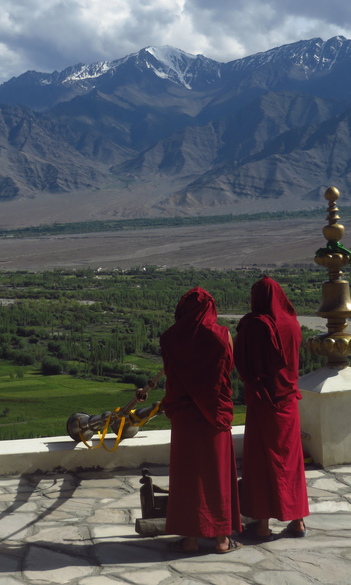MA | एम॰ए॰
MA in Indian Studies | एम॰ए॰ भारत अध्ययन

International Applications Open for 2022/2023 How to apply? | आवेदन-प्रक्रिया
SHORT DESCRIPTION & AIM OF PROGRAM
- The MA course offered by the Department of Indian Studies at the Faculty of Humanities is a two-year, full-time course, including four semesters. The student who is to take up this course must have a sound knowledge of Sanskrit or Hindi depending on the specialization she or he chooses and should also be familiar with the main characteristics of Indian culture. At the end of the course the student is required to complete an MA thesis.
- The teachers at the department are specialized in Sanskrit philology and literature, Indo-Aryan and Comparative Indo-European linguistics, Hindi language and literature.
- This program is recommended to applicants who would like to deepen their knowledge in Indology and think about to pursue an academic career or intend to work as experts of Indian and South Asian culture at such places of employment as publishing houses, cultural centres, international companies, civil service or non-governmental organizations.
- This program enables students to carry out a research program in Indology and prepares them for a PhD.
- The teachers of the program have significant international experience. They have studied and/or worked in research projects abroad. The Department of Indian Studies has academic cooperations and exchange programs with various European universities and research centres. It has Erasmus+ partnership with the University of Vienna, University of Naples, University of Torino, University of Warsaw, University of Hamburg and Ghent University.
- The students of the program acquire a deep and thorough knowledge of the chosen language (Hindi or Sanskrit) and with the help of this, they study a wide range of subjects (history, literature, religious studies, philosophy, art history, etc.) through the reading and analysis of primary sources. In their studies and researches, the students are assisted by the department’s excellent library which owns books and periodicals mainly in the fields of Sanskrit studies, Indo-European linguistics, Hindi language and literature.
- Examples show that graduating from our program is a very good starting point for doctoral or (at a later stage) postdoctoral studies. A number of our former MA students have studied for their PhD at renowned foreign universities such as the University of Oxford and the University of Chicago.
MA Curriculum: list of study units, or the outline of the two-year MA course in Indian Studies
IN DETAIL
MA in Indian Studies
Entrance to the second cycle of the Indological curriculum, i.e. the master (MA) course in Indology, is based, on the one hand, on the applicant’s BA results. Full credit acknowledgement is given for a BA degree in “Oriental Languages and Cultures”, specialized in Indological Studies (other BA degrees are evaluated on an individual basis). On the other hand, the applicant has to accomplish the entrance examination successfully, which consists of two parts, a written examination (language test and translation) and an interview including a discussion about the motivation and programme-related academic background and professional experience of the applicant.
Within the master course in Indology, the student has to choose a “specialization”, i.e. Sanskrit or Hindi. The MA course requires the fulfillment of a total of 120 credits, of which 110 credits are acquired through the “core” subjects and subjects of the chosen specialization, while 10 credits are reserved for free elective subjects. The Indology MA programme is available in Hungarian and, from September 2019, also in English, which is expected to widen the perspectives of Hungarian Indology in general and the Department of Indian Studies in particular.
Core Studies
The “core” subjects are common to both specializations, Sanskrit and Hindi, and introduce the students to topics not studied at the BA level (textual criticism and text editing, comparative Indo-European linguistics) and deepen their knowledge in the field of Indian religions, literatures and art.
Specialization Studies
This module of the master programme consists of obligatory study units and special elective courses in both specializations.
The obligatory subjects include text reading (Sanskrit and Hindi) and conversation (Hindi) classes and courses on the history of Old and New Indo-Aryan languages and languages related to them (such as Avestan, Old Persian, Pali, Prakrit on one hand and Urdu, Braj on the other).
Sanskrit texts to be read during these classes include intermediate and advanced level kāvya and śāstra texts (e.g., Raghuvaṃśa with commentaries, Kirātārjunīya, Kathāsaritsāgara, Manusmṛti, Śābarabhāṣya, inscriptions) and specimens of Vedic Old Indo-Aryan (in particular, hymns of the Ṛgveda). Hindi authors studied in the text reading classes are, among others, Gulerī, Jayśankar Prasād, Phanīśvarnāth Reṇu, Nāgārjun, Kedarnāth Singh and Manṭo.
The special courses are offered and chosen in accordance with the teachers’ fields of expertise and the interest of the students and deal with various topics related to Indian and South Asian cultural history such as Indian theatre and drama, Indian religions and philosophies, history of India, Indian film and cinema, cultural heritage, visual culture and urban morphology of South Asia, etc.
At the end of the MA programme, students have to prepare an MA thesis with the help of a supervisor on a selected topic related to any of the subjects studied during the programme and to pass a final examination, which consists of a discussion of the thesis itself and other related topics.
During their BA or MA studies students may have the opportunity to take part in the international mobility programmes of the Department and study for a semester at one of its Erasmus+ partner universities (Warsaw, Torino, Naples, Hamburg or Ghent).

